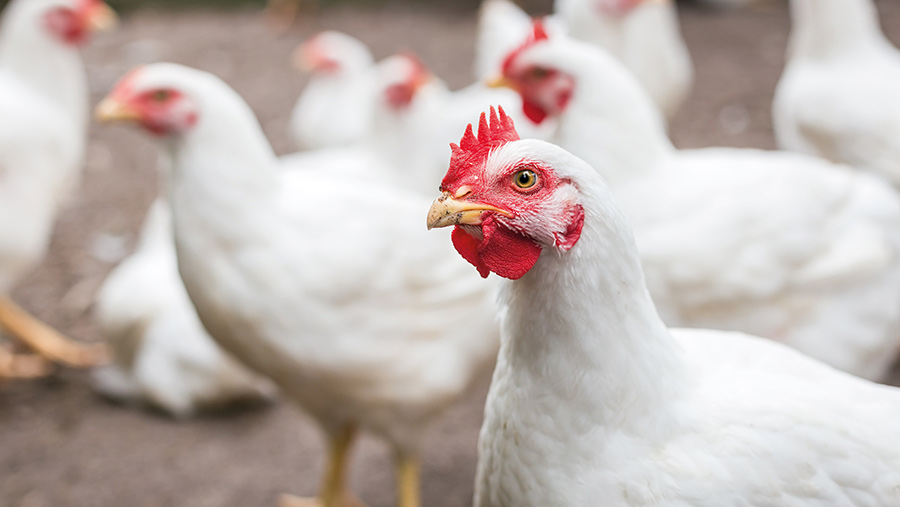Future of fast-growing broiler production challenged in High Court
 © Kishyru/Adobe Stock
© Kishyru/Adobe Stock The future of modern, fast-growing broiler chickens for meat consumption is being called into question in the High Court in London, as judges consider a claim that their production breaks animal welfare regulations.
The legal challenge against Defra has been brought by The Humane League UK, which argues that the use of conventional meat birds, which they say grow unnaturally large and fast, breaches the Welfare of Farmed Animals (England) Regulations 2007.
The case, being held on Wednesday and Thursday (3 and 4 May), also challenges Defra’s monitoring system for detecting welfare issues associated with conventional chicken breeds, based on vet reports from slaughterhouses.
See also: How farmers can achieve better broiler leg health
On the first day of the case, legal counsel for The Humane League, Edward Brown KC, claimed that “breeding practices have increased meat yield, and allowed producers to significantly reduce cost, at the expense of substantial welfare detriment.
“Welfare issues connected to fast-growing breeds include musculoskeletal and cardiovascular disorders such as leg weakness, ascites, breast muscle myopathies and higher mortality rates, all of which are exacerbated as a result of the high-density, intensive conditions in which the animals are kept.”
He also suggested fast-growing breeds could not be kept without detriment to their health and welfare.
Defense
Defra has contested the challenge, however, saying there is no scientific proof that fast-growing birds suffer health problems as a matter of course.
It adds it is the responsibility of the broiler grower to meet welfare standards, with legal penalties for those who cause any captive animal unnecessary suffering.
“We are proud to have some of the highest animal welfare standards in the world,” said a statement.
“All farm animals are protected by robust animal health and welfare legislation. This sets out detailed requirements on how farmed livestock, including meat chickens, must be kept.
The case is expected to conclude on Thursday (4 May), though a verdict is not expected until a later date.
